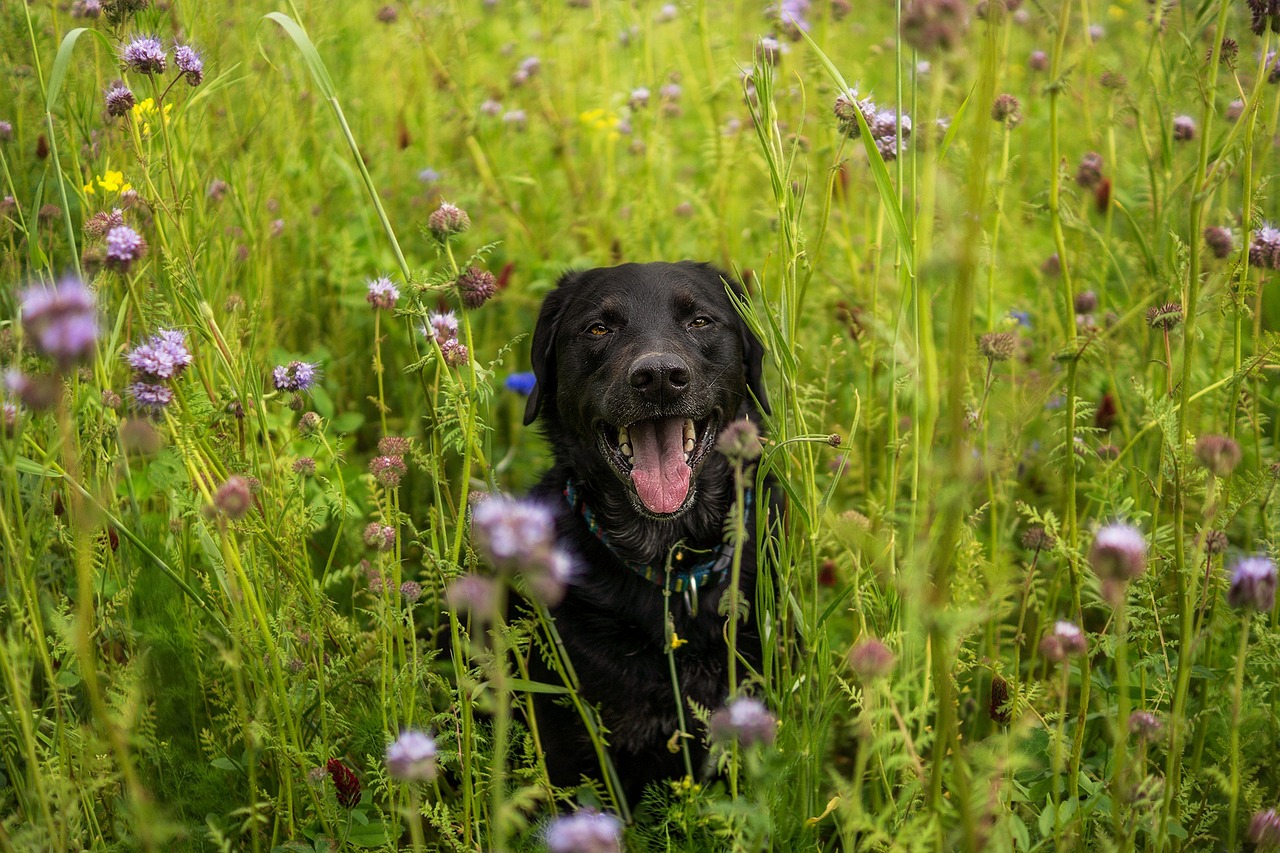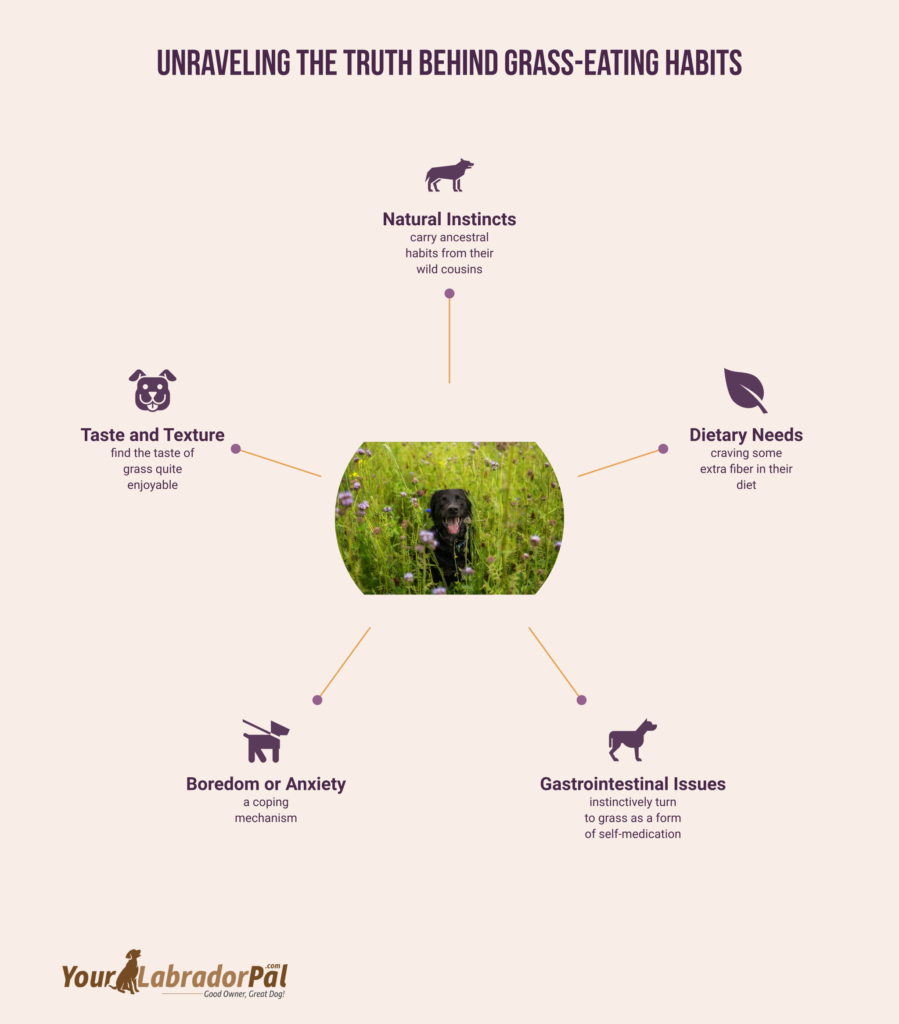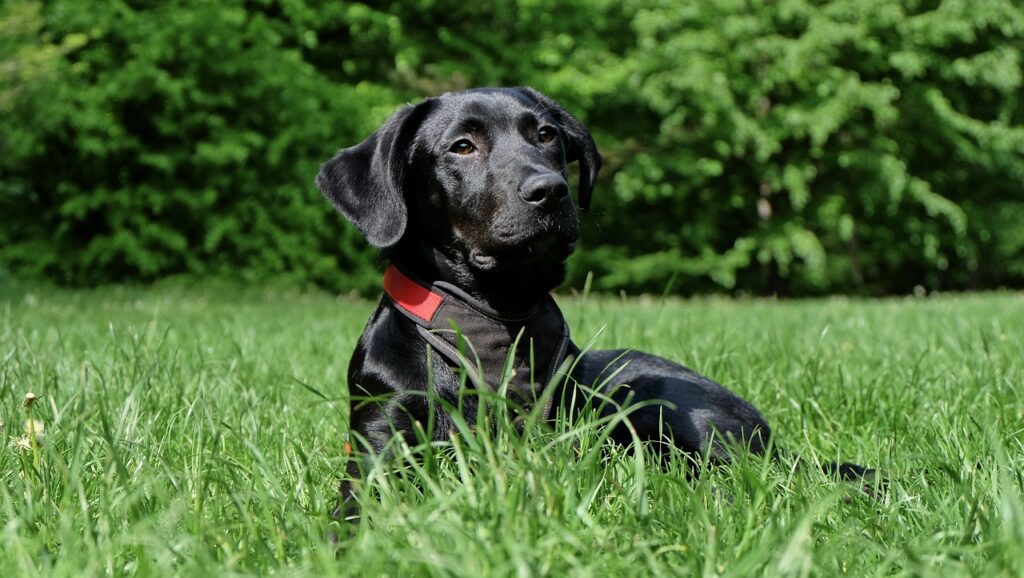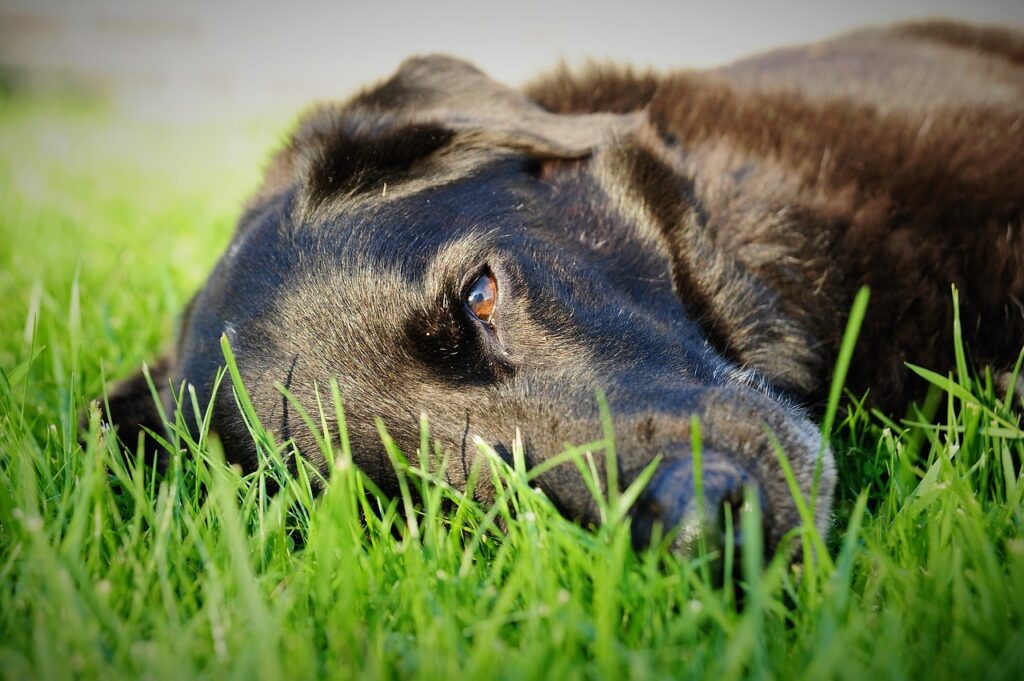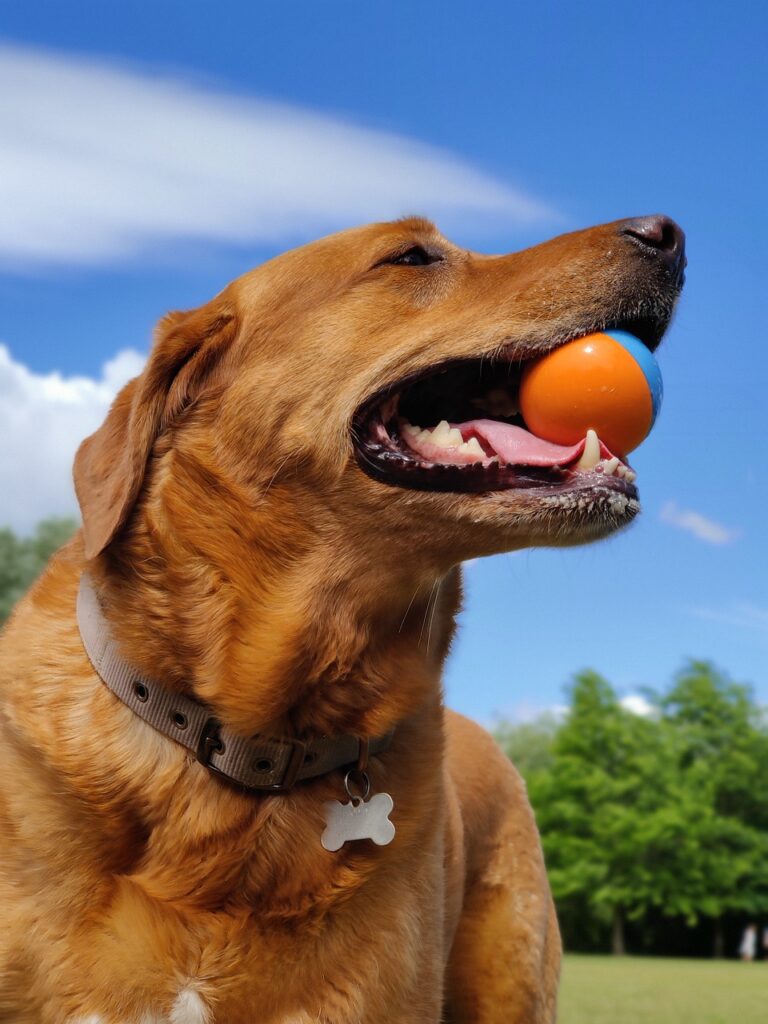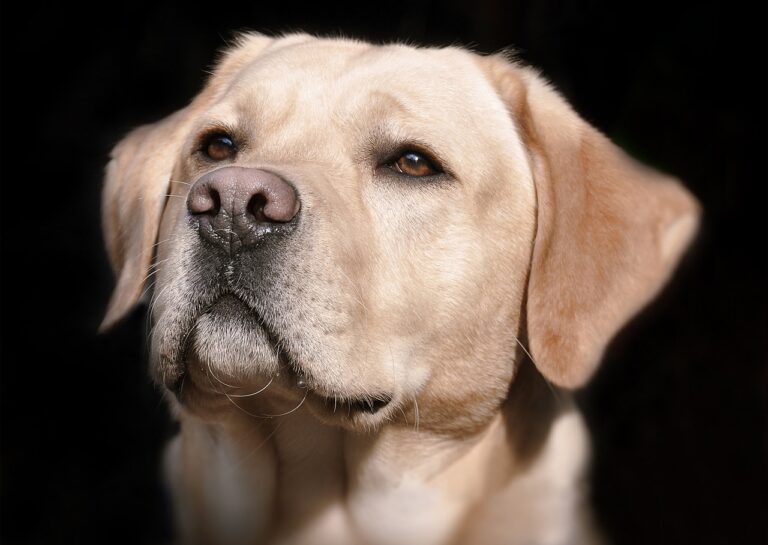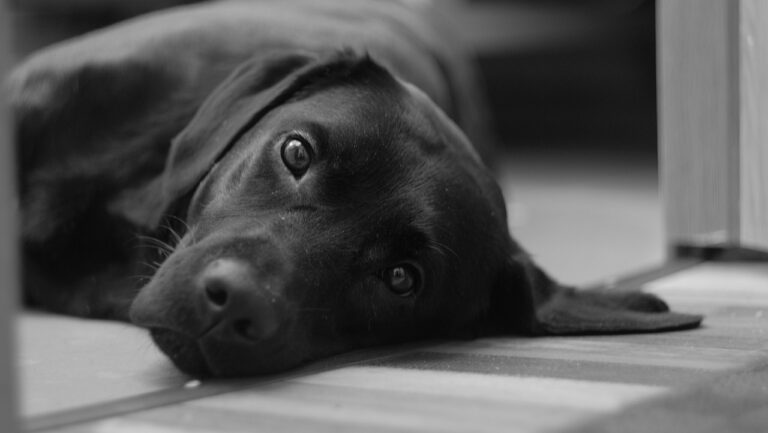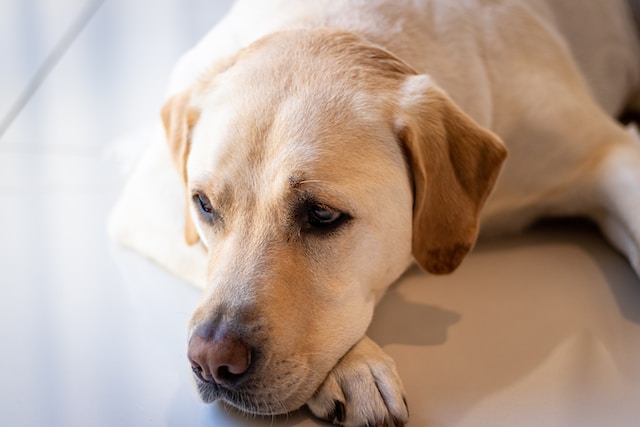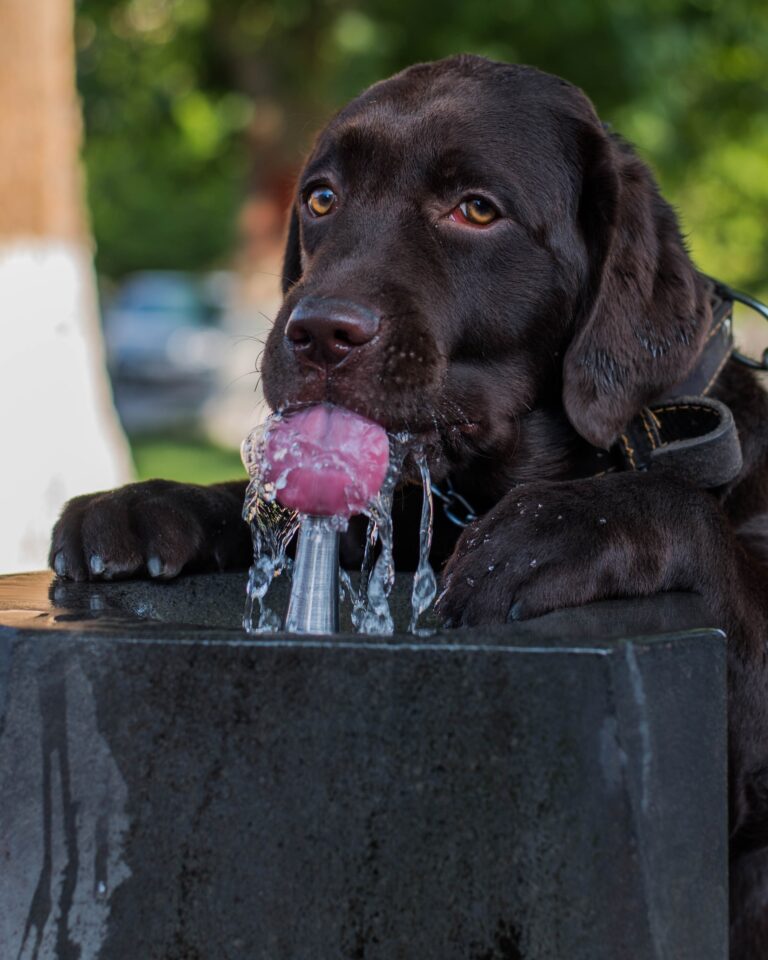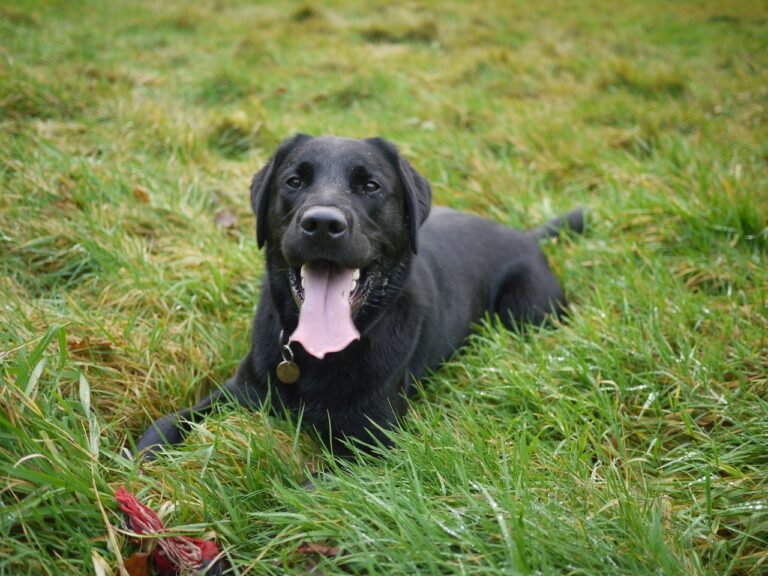Why Does My Labrador Eat Grass?
Have you ever caught your furry friend munching on grass and wondered, “Why does my Labrador eat grass?” Is it normal?
Many pet owners have searched the internet for answers to this peculiar behavior. The good news is that, in most cases, there’s nothing seriously wrong with your pup. However, there are a few possible explanations as to why your Labrador may be munching on grass.
So, let’s jump right in and get to the root of this grassy mystery!
Common Reasons for Grass Eating in Labradors
The first thing to mention is that practically all dogs occasionally eat grass. Some do it more than others, but it’s completely normal behavior. Your pup may be doing this for one of the following reasons:
🍀 Natural Instincts
One of the fascinating reasons behind our Labradors’ grass-eating habits is actually rooted in their natural instincts. It’s like they’re channeling their inner wild side! Let me explain a bit more about what I mean by that.
Our domesticated dogs still carry ancestral habits from their wild cousins, like wolves and coyotes. Back in the day, these wild canids would eat the entire prey, including the stomach contents, which often contained plant matter like grass. So, in a way, grass has always been a part of their diet, even if it’s not something we typically serve up in their food bowls these days.
Grass consumption also provides some benefits for wild canids. For instance, it can help with digestion, as the fibrous texture assists in moving things along smoothly. In fact, it’s not uncommon to find traces of grass in the scat of wolves and other wild canines.
So, the next time you see your Labrador munching on grass, just remember that they’re tapping into their ancestral roots and following their instincts. It’s pretty amazing how these behaviors have been passed down through generations, right? And now you have a great conversation starter for your next dog park visit!
🍀 Dietary Needs
Do you know what’s really interesting about our Labradors and their grass-eating habits? Sometimes, they’re trying to tell us about their dietary needs! It’s like they have their unique way of communicating with us.
One possibility is that your Labrador might be craving some extra fiber in their diet. Like humans, dogs can benefit from a good amount of fiber to help regulate their digestion and keep things moving smoothly. So when your pup starts nibbling on grass, it could be their way of supplementing their fiber intake. Pretty clever, huh?
Another potential reason behind their grassy cravings could be related to nutrient deficiencies. If your Labrador lacks certain essential nutrients, it might instinctively turn to grass as a source of those missing elements. For example, grass contains small amounts of nutrients like potassium, iron, and even some trace vitamins. While it’s not an ideal source of nutrition, it might just be enough to fill in the gaps for your furry friend.
🍀 Gastrointestinal Issues
There’s another reason why our Labradors might be munching on grass that I find intriguing. Sometimes, it concerns them trying to soothe their gastrointestinal issues. It’s like they have their natural remedies right in our backyards!
When your Labrador has an upset stomach, it might instinctively turn to grass as a form of self-medication. It’s believed that the grass can help stimulate their digestive system and induce vomiting, ultimately relieving any discomfort they’re experiencing, like a natural Pepto-Bismol for dogs.
On top of that, grass can also help alleviate indigestion by providing extra fiber to aid digestion. As we mentioned earlier, fiber is essential for keeping things moving smoothly through the digestive tract, so when your pup starts nibbling on grass, it could be their way of finding some much-needed relief from tummy troubles.
🍀 Boredom or Anxiety
Sometimes, their grass-eating habits might be linked to their emotional well-being. When our furry friends feel bored or anxious, they might turn to grass as a coping mechanism. It’s like how humans might pace around or fidget when feeling restless or stressed out. For dogs, grazing on grass can provide an engaging activity that helps distract them from their worries and keeps their minds occupied.
In addition to being a distraction, grass-eating can also offer some stress relief for our pups. The act of chewing and nibbling on grass can be soothing for them, helping to calm their nerves and alleviate any tension they might be experiencing. It’s like their own version of a stress ball!
🍀 Taste and Texture
Believe it or not, some dogs find the taste of grass quite enjoyable. Yep, you heard right! While it might not be our idea of a tasty treat, our furry friends can appreciate grass’s distinct flavor. And who are we to judge their taste buds, right?
In addition to the taste, the texture of grass can also be appealing to our Labradors. Chewing on the fibrous blades can provide a satisfying sensation for them, much like how we might enjoy crunching on a crispy snack. It’s all about the sensory experience; our pups are no exception when enjoying simple pleasures.
So, the next time you see your Labrador happily munching away on grass, remember that they might just indulge in a tasty treat that brings them joy. As long as their grass-eating doesn’t become excessive or cause any health concerns, let them enjoy their little culinary adventure. After all, life is all about savoring the flavors, even if it’s just a humble blade of grass!
Is Eating Grass Harmful to Your Labrador?
While grass-eating can be a natural behavior for our Labradors, there are actually some potential dangers we should be aware of. I’d love to share a few of these concerns with you to keep our furry friends safe and healthy.
🐕 Pesticides and Chemicals
One of the biggest concerns with our dogs eating grass is the potential exposure to pesticides and chemicals. Many lawns and public spaces are treated with various chemicals to keep them lush and green.
Unfortunately, these substances can be harmful to our pets when ingested. So, when your Labrador starts munching on grass, ensure it’s from an area you know is free from harmful chemicals. Better safe than sorry, right?
🐕 Toxic Plants
Another danger to look out for is toxic plants. While most grasses are safe for our pups to consume, some plants can be harmful or even deadly to dogs. It’s important to familiarize yourself with common toxic plants in your area and ensure your Labrador steers clear of them during their grass-eating adventures.
If you’re ever unsure about a particular plant, consult your vet or do some research to keep your dog safe.
🐕 Parasites
Last but not least, parasites can also threaten our grass-eating Labradors. Some parasites, like roundworms and hookworms, can be found in soil and grass, especially in areas frequented by other animals. When our dogs consume grass, they might also accidentally ingest these parasites. To help protect your pup, ensure they’re on a regular parasite prevention program and always keep an eye on the areas where they eat grass.
When to Be Concerned
Now that we’ve covered all the potential risks let’s talk about when we should be concerned.
📍 Excessive Grass Eating
While occasional grass-eating is generally not a cause for concern, if your Labrador starts consuming grass excessively or obsessively, it might be time to pay closer attention. This could indicate an underlying issue, like a dietary deficiency or gastrointestinal problem, that needs to be addressed.
If you notice a sudden increase in your dog’s grass-eating habits, it’s always a good idea to consult your vet to figure out what’s happening.
📍 Vomiting or Diarrhea
Although grass can sometimes help our dogs relieve an upset stomach, if they start experiencing vomiting or diarrhea after eating grass, it’s definitely a cause for concern. This could signify a more serious issue, like an illness or an allergic reaction.
In such cases, you must contact your veterinarian as soon as possible to determine the best course of action and ensure your pup gets the care they need.
📍 Changes in Behavior or Appetite
Lastly, it’s time to take a closer look if you notice any changes in your Labrador’s behavior or appetite alongside their grass-eating habits. This could indicate that something is amiss and your dog is trying to self-medicate or cope with discomfort.
Watch for signs like lethargy, loss of appetite, or unexplained weight loss. If you observe any of these changes, contact your vet to discuss your concerns and determine the best way to support your dog’s health.
How to Discourage Your Labrador from Eating Grass
If you’re worried about your Labrador eating too much grass, there are a few strategies you can use to discourage them.
🦮 Addressing Underlying Causes
First and foremost, it’s essential to rule out any medical issues causing your Labrador to eat grass. As we’ve discussed, grass-eating can sometimes signify gastrointestinal issues or other health problems. So, chat with your vet about your dog’s behavior to ensure there aren’t any underlying medical concerns that need addressing.
Another crucial factor to consider is your Labrador’s diet. If they’re not getting the right balance of nutrients, they might turn to grass to supplement their nutritional needs. Make sure you’re feeding your pup a high-quality, well-balanced diet that meets all their requirements.
If you need more clarification about your dog’s dietary needs, consult your veterinarian or a pet nutrition expert. They can help guide you in choosing the best food for your Labrador and ensuring they get everything they need to thrive.
Lastly, if you suspect your Labrador is eating grass out of boredom or anxiety, addressing these emotional issues is essential. Try providing your pup with plenty of mental and physical stimulation through exercise, playtime, and socialization. Interactive toys and puzzle feeders are also great for keeping their minds engaged and happy.
🦮 Training Techniques
Training techniques can be a great way to help our pups understand what we expect of them and curb their grass-munching habits. Let me share some tips on how to use training methods effectively!
Redirecting Attention
One useful approach is to redirect your Labrador’s attention whenever they start showing interest in eating grass. You can do this by offering them a favorite toy or treat or by engaging them in a fun activity like playing fetch or going for a walk. The idea here is to provide an alternative more appealing than grazing on grass, so they’ll be more likely to choose the new option instead.
Positive Reinforcement
Positive reinforcement is a powerful tool in dog training, and it can work wonders when trying to discourage grass-eating behavior. Whenever your Labrador resists the temptation to eat grass or chooses to engage in a different activity, make sure to reward them with praise, treats, or affection.
By reinforcing their good choices, you’ll help them understand that there are better alternatives to grass-eating and that these alternatives come with some pretty awesome rewards!
Consistency and Patience
When it comes to training, consistency, and patience are key. Sticking to your training plan and persist in redirecting your Labrador’s attention and rewarding their good behavior. Remember, change doesn’t happen overnight, and it might take some time for your pup to grasp what’s expected of them fully.
Also, remember that every dog is different, and some Labradors may need more time and patience than others. Stay patient and understanding, and always remember to celebrate even the smallest victories along the way!
🦮 Creating a Safe Environment
another great way to discourage your Labrador from eating grass is by creating a safe and controlled environment. It’s kind of like setting up the perfect playground where our furry friends can have fun without getting into any grass-related trouble!
Avoid Chemically Treated Lawns
As we discussed earlier, one of the potential dangers of grass-eating is exposure to harmful chemicals and pesticides. To minimize this risk, ensure your Labrador plays and spends time in areas where you know the grass has yet to be treated with these substances. By doing this, you’ll protect them from potential harm and lessen the appeal of grass as a tasty treat.
Remove Toxic Plants
Another important step is removing toxic plants from your yard or garden. Familiarize yourself with common toxic plants in your area and ensure your Labrador doesn’t have access to them. This way, you can let your pup explore its surroundings safely without worrying about accidentally ingesting something harmful while grazing.
Provide Alternative Chew Toys or Treats
Lastly, consider providing your Labrador with alternative chew toys or treats that can satisfy their craving for texture and chewing satisfaction. Durable chew toys, dental chews, or some safe, dog-friendly vegetables can be excellent alternatives to munching on grass.
By offering these enticing options, you’ll help redirect your dog’s attention away from grass and towards something that’s safe and beneficial for their dental health and overall well-being.
Creating a safe environment for your Labrador effectively discourages grass-eating while ensuring they stay happy and healthy. Plus, it gives you peace of mind knowing that your furry friend can enjoy their outdoor adventures without any grass-related risks. So, let’s embrace our roles as pet parents and create the perfect, grass-free haven for our beloved Labradors!
Frequently Asked Questions
Q: What should I do if my dog eats grass and vomits?
While it may seem concerning to see your furry friend chowing down on some greens like a rabbit, it’s common among dogs. However, if your pup starts to vomit after consuming the green stuff, it’s time to take action. Your pup may be experiencing some GI distress, or something else is going on entirely. It’s always best to consult with your veterinarian to rule out any serious issues and get your pup back to feeling 100%. In the meantime, keep an eye on your puppy’s grass intake and, as always, give them lots of love and belly rubs.
Q: How long after eating grass will a dog vomit?
It depends. Some dogs may start vomiting almost immediately, while others may not feel any effects. This is because individual dogs have different digestive systems and react to grass differently. In some cases, the grass may help your dog soothe an upset stomach; in others, it may cause more harm than good.
Q: What dog food should I feed my Labrador Retriever to prevent them from eating grass?
There is no one-size-fits-all answer here, as what works best for one pup may not work for another. However, certain dog foods may help reduce the likelihood of grass-eating in Labradors:
- Look for high-quality kibbles that meet AAFCO standards and contain your pup’s necessary nutrients.
- Ensure the kibble is rich in protein, which helps keep your pup full and satisfied for longer.
- Always opt for nutrient-dense foods that are low in fillers, as these can often only lead to boredom and cravings.
Q: Should I take my Labrador to the vet if they eat grass?
In most cases, eating grass is not a cause for concern and can be managed with training and environmental modifications. However, if your pup is excessively eating grass or vomiting after grazing, it’s best to schedule a visit with your veterinarian.
Q: What activity should I do with my Labrador to distract them from grass-eating?
One activity that always seems to do the trick is playing fetch. Labs are notorious for their love of chasing and retrieving, making it the perfect distraction. Not only will it get them moving and burn off some energy, but it will also strengthen your bond with your furry friend.
Final Words
So, there you have it! We’ve explored the fascinating world of grass-eating Labradors together and uncovered some of the reasons behind this intriguing behavior. Whether it’s due to taste and texture, an attempt to soothe an upset stomach or even boredom, our furry friends have their reasons for munching on those green blades.
But remember, while grass-eating can be a natural and sometimes harmless behavior, it’s essential to watch for any warning signs that might indicate a more serious issue. And if you ever feel concerned or unsure about your Labrador’s grass-eating habits, don’t hesitate to consult your veterinarian – they’re always there to help!
As responsible pet parents, we must create a safe and nurturing environment for our Labradors, addressing any underlying issues and providing them with alternatives to grass when needed. By doing so, we can ensure they enjoy a happy, healthy life filled with love, care, and less grass!

